Find Help
More Items From Ergsy search
-

Mental Health Support Services in the UK
Relevance: 100%
-
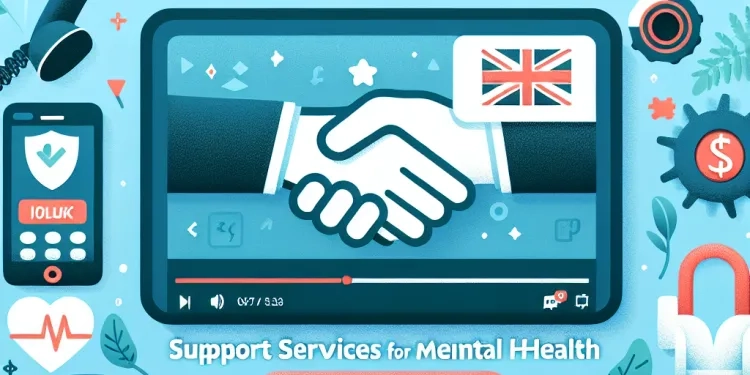
Support Services for Mental Health Amid Economic Uncertainty
Relevance: 86%
-
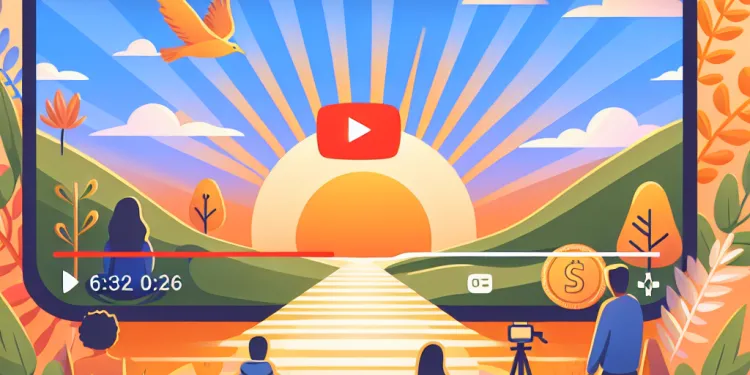
Mental Health Support Resources in the UK
Relevance: 82%
-
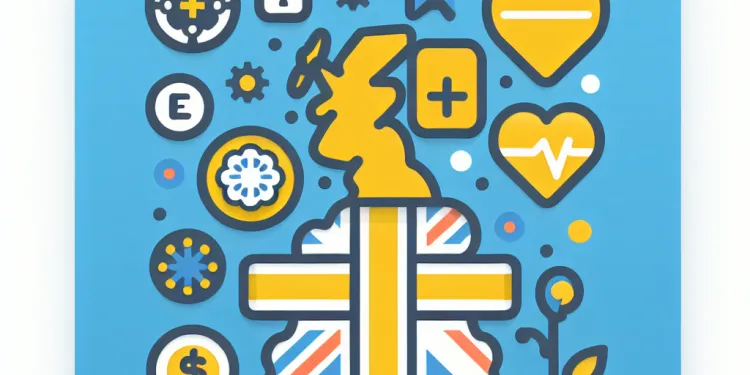
Accessing Mental Health Support Resources in the UK
Relevance: 78%
-
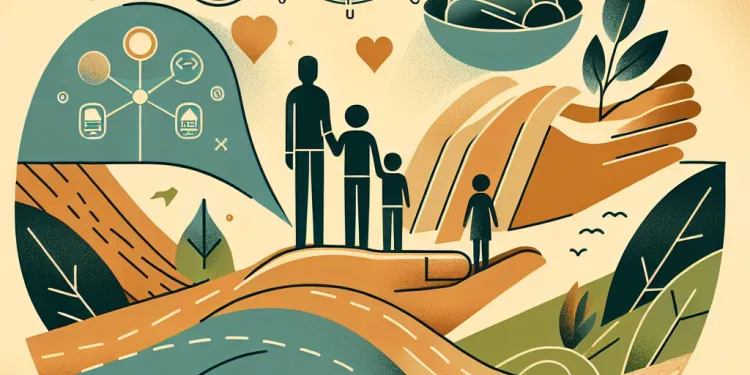
Navigating Mental Health Services for Children and Adolescents
Relevance: 76%
-
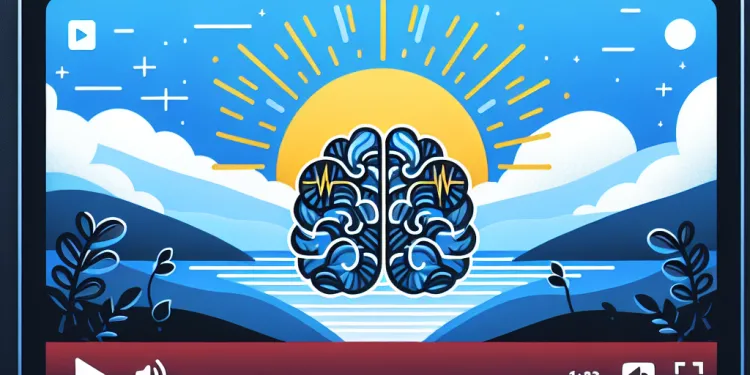
Current Challenges in Youth Mental Health Services
Relevance: 76%
-

Mental Health Support Resources for Families
Relevance: 75%
-
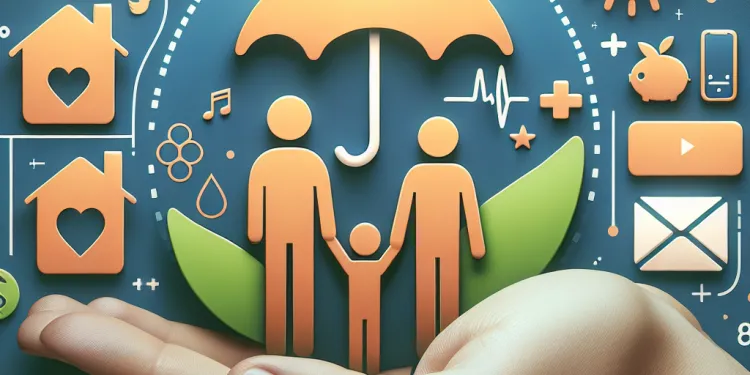
Mental Health Support for Families: Resources and Helplines
Relevance: 74%
-
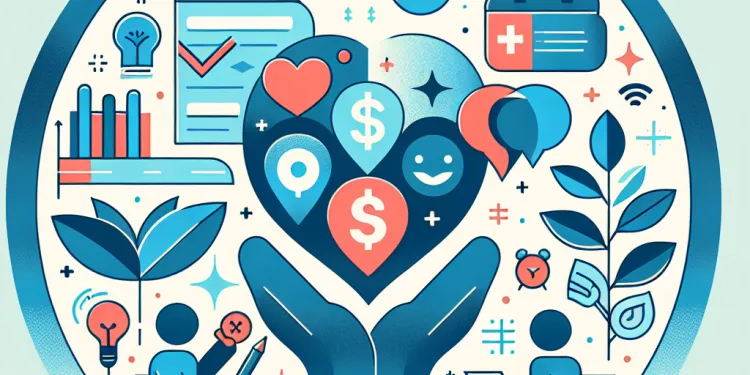
Mental Health Support for Families: Resources and Strategies
Relevance: 74%
-
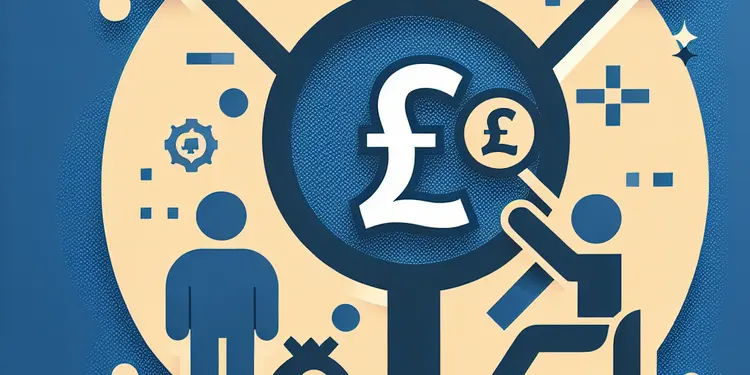
Can primary care support workers access mental health support?
Relevance: 71%
-

Mental Health Support for Families: Resources and Guidance
Relevance: 71%
-

NHS Unveils Revolutionary Mental Health Support Initiative
Relevance: 71%
-
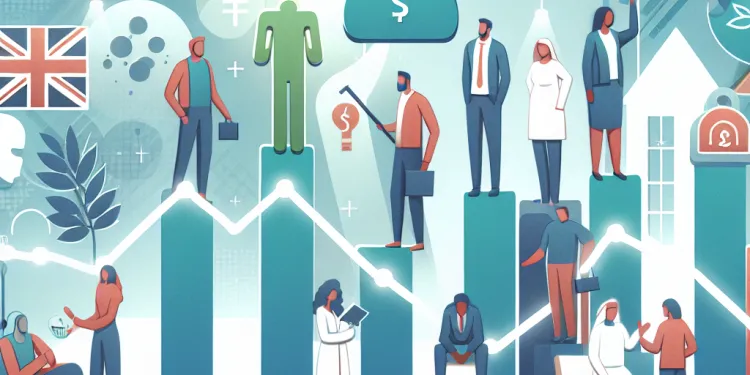
Mental Health Services Struggle to Cope Amid Record Demand
Relevance: 70%
-
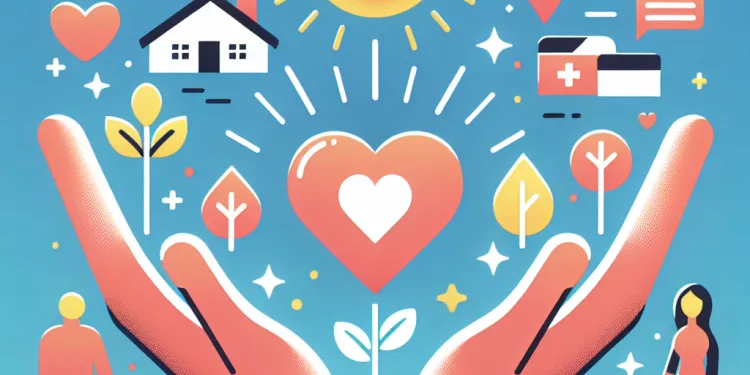
Mental Health Support for Families - Latest Resources and Guidance
Relevance: 68%
-
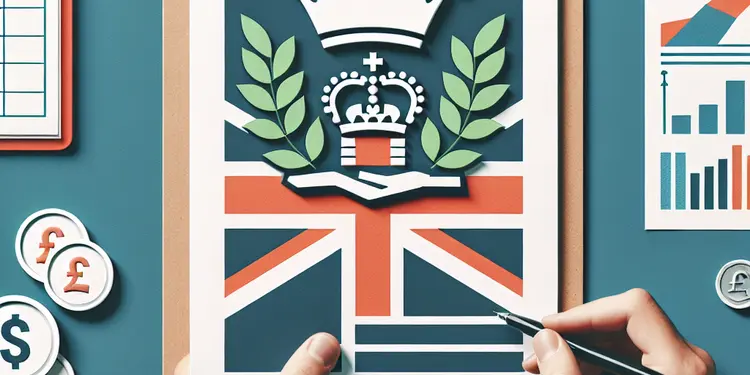
New Report Highlights Gaps in Mental Health Services for Welfare Recipients
Relevance: 67%
-
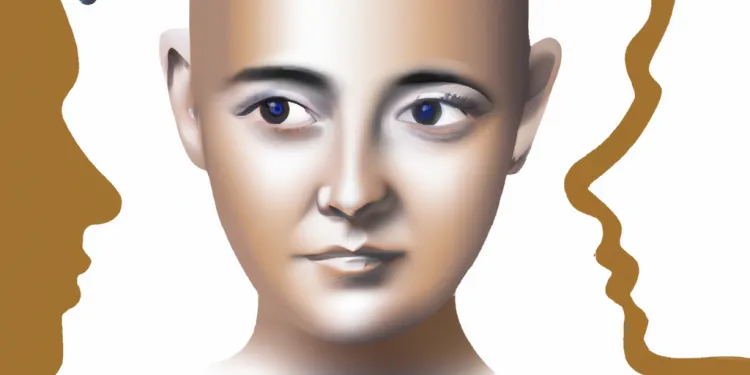
Mental Health Resources for Families
Relevance: 66%
-
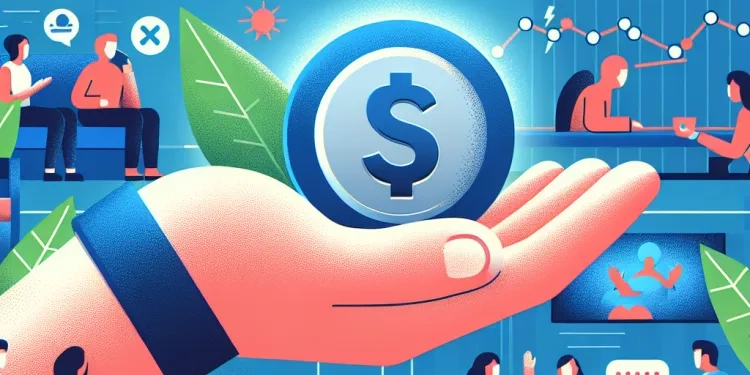
Mental Health Impact of Cost of Living Crisis and Support Resources
Relevance: 64%
-
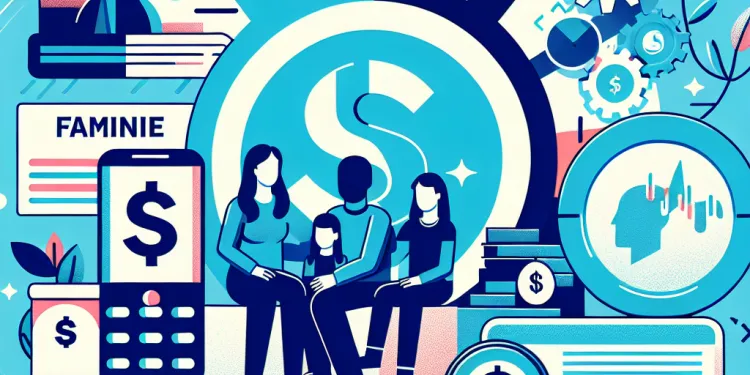
Advancements in Mental Health Resources for Families
Relevance: 62%
-
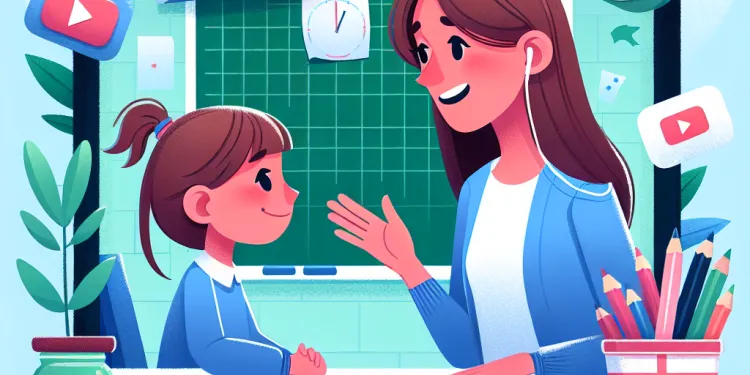
Understanding Mental Health in Children
Relevance: 60%
-
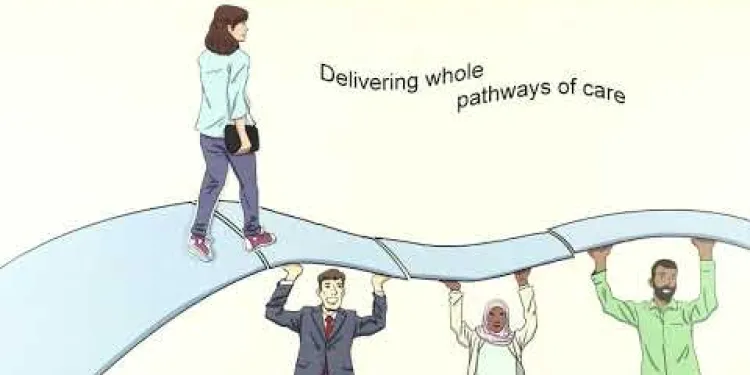
NHS-led Provider Collaboratives: improving mental health, learning disability and autism services
Relevance: 59%
-

Mental Health: Laura's Story | NHS
Relevance: 58%
-
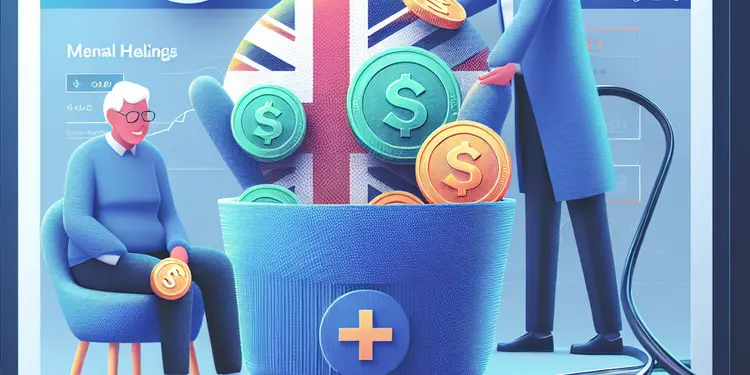
What mental health resources are available for seniors?
Relevance: 56%
-
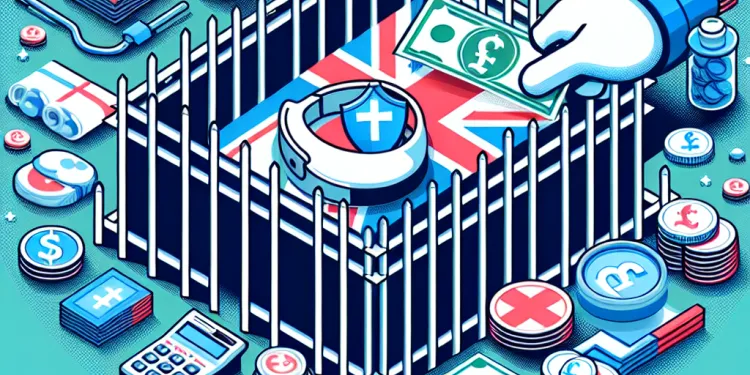
How are health services provided in prison?
Relevance: 56%
-

Tackling Youth Mental Health: Community Initiatives and Solutions
Relevance: 55%
-
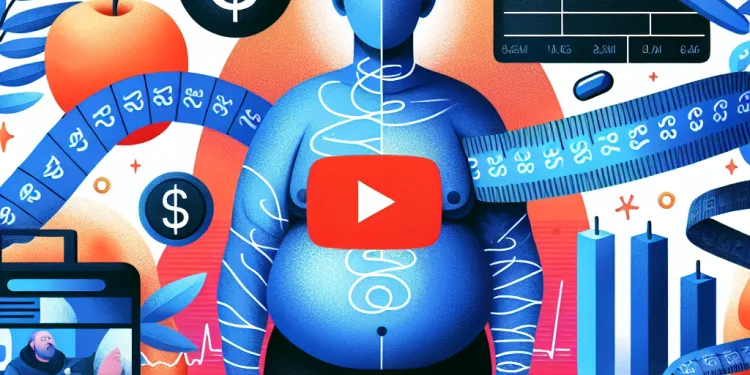
What is the impact of obesity on mental health?
Relevance: 55%
-
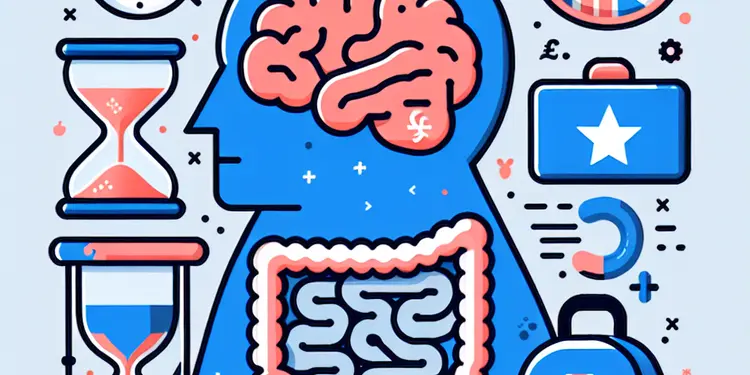
Can gut health affect mental health as one ages?
Relevance: 53%
-

Short Films About Mental Health - Trauma PTSD
Relevance: 52%
-

Are there online support services for prostate cancer patients on the NHS?
Relevance: 51%
-
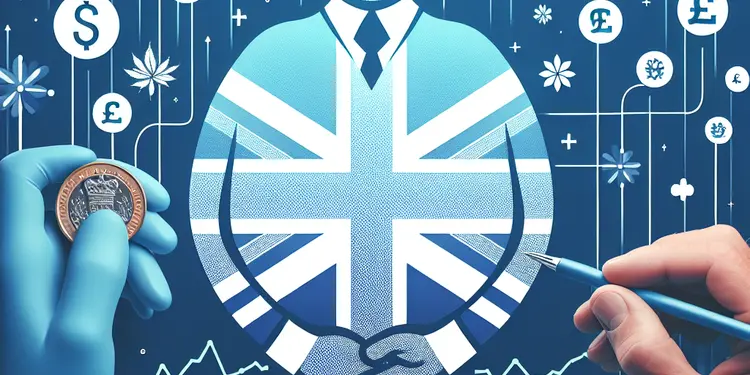
How can community helpers get mental health support?
Relevance: 51%
-

Can relationship problems be resolved to improve mental health?
Relevance: 51%
-
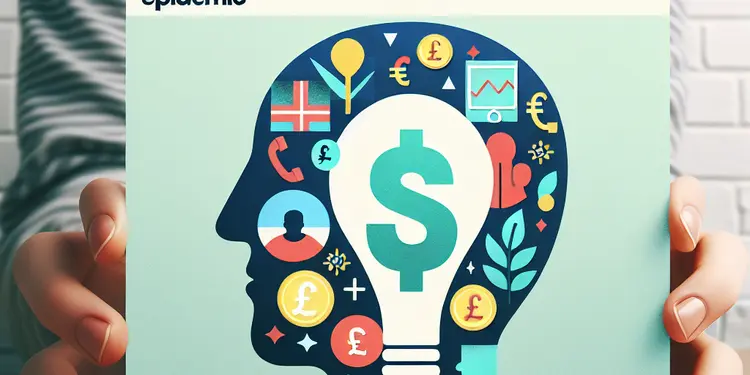
New Mental Health Strategy Launched to Address Youth Anxiety Epidemic
Relevance: 50%
-
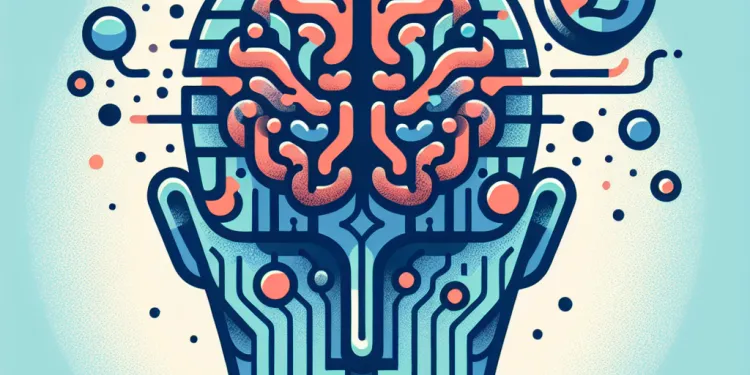
Can concussions lead to mental health issues?
Relevance: 50%
-

Essential Tips for Mental Health and Well-Being Amidst Rising Living Costs
Relevance: 50%
-
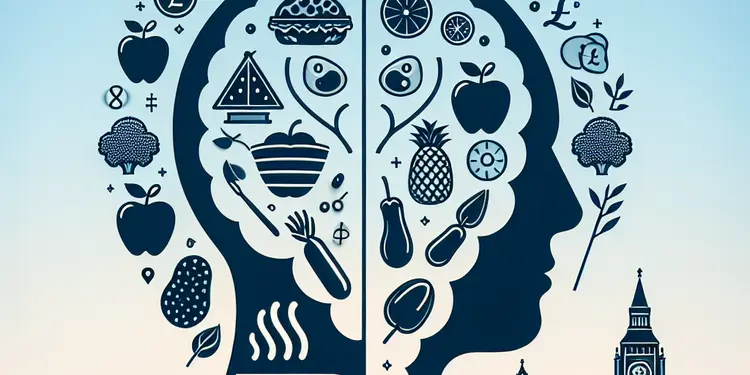
How do eating disorders affect mental health?
Relevance: 49%
-

What is the role of mental health assessments in indefinite sentences?
Relevance: 49%
-
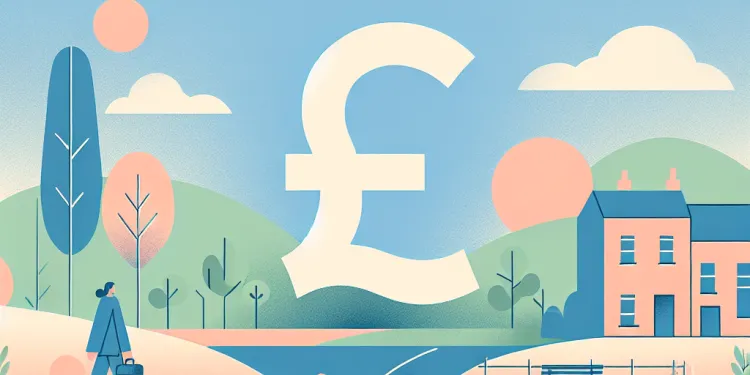
New Report Highlights Gaps in Mental Health Support for Benefit Recipients
Relevance: 49%
-

Can mixed exercises improve mental health?
Relevance: 49%
-
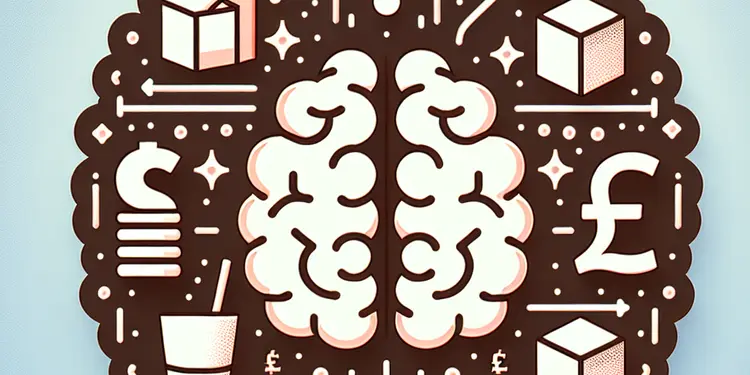
How does sugar impact mental health?
Relevance: 48%
-

How does binge drinking affect mental health?
Relevance: 48%
-
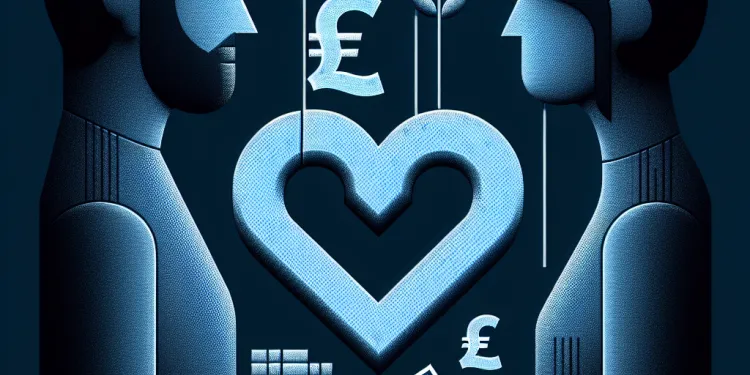
Can ending a toxic relationship improve my mental health?
Relevance: 47%
Mental Health Support Services in the UK
Overview
Mental health support services in the UK are designed to provide assistance to individuals experiencing mental health issues. These services range from emergency intervention and hospital care to community support, counseling, and therapy. The UK government and various charitable organizations offer numerous resources to help individuals manage their mental health effectively.
National Health Service (NHS)
The NHS is the primary provider of mental health services in the UK. It offers a wide array of services including psychological therapies, specialist mental health treatment, and crisis support. People can access these services through self-referral or by being referred by a general practitioner (GP). The NHS ensures that mental health treatments are available to everyone, irrespective of their financial situation.
Private Mental Health Support
In addition to NHS services, private mental health support is available throughout the UK. Private healthcare providers offer personalized treatment plans, shorter waiting times, and a wider range of therapies. While these services come at a cost, many people find the investment worthwhile for the tailored care they receive.
Charitable Organizations
Numerous charitable organizations, such as Mind, Rethink Mental Illness, and Samaritans, provide invaluable mental health support across the UK. These organizations offer helplines, support groups, and online resources to help those in need. They also work to reduce stigma and increase public awareness about mental health issues.
Community Support
Local community services play a crucial role in supporting individuals with mental health issues. These services include drop-in centers, peer support groups, and community mental health teams. They offer help with everyday activities, and social interaction, and create a supportive environment for those struggling with mental health challenges.
Conclusion
Mental health support services in the UK are comprehensive and multifaceted, designed to meet the varying needs of individuals across the country. Whether through the NHS, private providers, charitable organizations, or community support, there is a wealth of resources available to help people manage their mental health effectively.
Mental Health Support Services in the UK
Overview
Mental health support services in the UK help people who have mental health problems. These services include emergency help, hospital care, community support, counseling, and therapy. The UK government and charities provide lots of resources to help people take care of their mental health.
National Health Service (NHS)
The NHS is the main provider of mental health services in the UK. It offers many services like talking therapies, special mental health treatments, and crisis support. People can ask for help themselves or a doctor can refer them. The NHS makes sure everyone can get mental health treatment, no matter how much money they have.
Private Mental Health Support
Besides NHS services, there are private mental health services in the UK. Private providers offer personal treatment plans, faster services, and more therapy options. These services cost money, but many people find them valuable because of the special care they receive.
Charitable Organizations
Many charities like Mind, Rethink Mental Illness, and Samaritans provide important mental health support in the UK. These charities have helplines, support groups, and online help. They also work to stop stigma and teach people about mental health.
Community Support
Local community services are very important for people with mental health problems. These services include places to visit, peer support groups, and community mental health teams. They help with daily activities, socializing, and offer a supportive atmosphere for people facing mental health challenges.
Conclusion
The UK offers many types of mental health support to meet different needs. Whether it's through the NHS, private services, charities, or community support, there are plenty of options to help people manage their mental health.
Helpful tip: Try using simple tools like reminder apps to keep track of your mental health activities. It's also good to talk to someone you trust about your feelings.
Frequently Asked Questions
What is mental health?
Mental health refers to our emotional, psychological, and social well-being. It affects how we think, feel, and act. It also helps determine how we handle stress, relate to others, and make choices.
Where can I find mental health support services in the UK?
There are numerous mental health support services available in the UK, including NHS services, private therapy, charities such as Mind and Rethink Mental Illness, and online resources like the NHS website and Samaritans.
How can I access NHS mental health services?
To access NHS mental health services, you can speak with your GP, who can make a referral to specialized mental health services. You can also self-refer to some psychological therapy services through the NHS IAPT (Improving Access to Psychological Therapies) program.
What is the NHS IAPT program?
The NHS IAPT (Improving Access to Psychological Therapies) program offers therapies for common mental health issues like depression and anxiety. Individuals can self-refer or be referred by their GP.
What are some common signs of mental health issues?
Common signs include persistent feelings of sadness or hopelessness, extreme mood changes, withdrawal from friends and activities, significant tiredness, low energy, problems sleeping, and difficulty coping with daily problems and stress.
Are mental health services free on the NHS?
Yes, many mental health services are free on the NHS. However, access to certain services may depend on where you live, and waiting times can vary.
How can I get immediate help if I am in a mental health crisis?
If you are in a mental health crisis, you can call NHS 111 for immediate support, contact emergency services by dialing 999, or visit your nearest A&E department. The Samaritans also offer 24/7 support at 116 123.
Can I get mental health support online?
Yes, there are many online resources for mental health support, including online therapy, support groups, helplines, and websites like Mind, Rethink Mental Illness, and the NHS mental health pages.
What types of therapies are available for mental health issues?
Common types of therapies include Cognitive Behavioural Therapy (CBT), psychotherapy, counseling, mindfulness techniques, and medication where appropriate. The type of therapy suitable depends on the individual and their specific needs.
Are there support groups for mental health in the UK?
Yes, there are numerous support groups available across the UK for specific mental health conditions as well as general mental health support. Organizations like Mind and Rethink Mental Illness can help you find a local support group.
Can I seek therapy privately in the UK?
Yes, you can seek therapy privately. Private therapists and counselors can be found through professional bodies like the British Association for Counselling and Psychotherapy (BACP) or UK Council for Psychotherapy (UKCP).
Is mental health medication free on the NHS?
Medication prescribed for mental health issues is subject to the standard NHS prescription charge applicable unless you are exempt from these charges. Some individuals may qualify for free prescriptions based on age, medical conditions, or income.
How can I support a friend or family member with mental health issues?
You can support them by being a good listener, encouraging them to seek professional help, being patient and understanding, and helping them access resources. It's also important to look after your own well-being.
What should I do if I'm feeling overwhelmed by work-related stress?
If you are feeling overwhelmed by work-related stress, speak to your employer about your concerns, seek support from occupational health, and consider accessing mental health services or talking to your GP. Techniques such as mindfulness and relaxation exercises can also help.
Are there mental health resources specifically for young people in the UK?
Yes, there are many resources specifically for young people, including services through CAMHS (Child and Adolescent Mental Health Services), organizations like YoungMinds, and online platforms like Kooth and The Mix.
What is mental health?
Mental health is about our thoughts and feelings.
It helps us handle stress and problems.
Talk to someone if you feel sad or worried.
Try deep breathing or drawing to feel better.
Mental health is about our feelings, thoughts, and how we get along with other people. It shows in the way we think, feel, and what we do. It helps us deal with hard times, be with friends and family, and make decisions.
Here are some tips to help understand mental health better:
- Talk to someone: Share your feelings with a friend or a family member.
- Write it down: Keep a diary to write about your day and feelings.
- Take breaks: Rest and relax by doing something you enjoy.
- Breathe deeply: Take slow, deep breaths to help calm down.
Where can I get help for my feelings in the UK?
If you want to talk about your feelings or get help:
- Ask a doctor for help.
- You can call hotlines like Mind, Samaritans, or Childline.
- Tell someone you trust about how you feel.
These people can listen and help you feel better.
There are many places in the UK that can help with mental health. You can get help from the NHS, pay for private therapy, or talk to charities like Mind and Rethink Mental Illness. You can also find help online on the NHS website and from Samaritans.
How can I get help from NHS mental health services?
If you feel worried, sad, or stressed, you can get help. The NHS is here to support you.
Here is what you can do:
- Visit your doctor (GP) and tell them how you feel. They can help you find the right services.
- Go to the NHS website for information and advice. You might find helpful tools there.
- Call NHS helplines to talk to someone who can listen and guide you.
Helpful tips:
- Write down how you feel before seeing the doctor, so you don't forget anything important.
- Ask a family member or friend to come with you for support.
If you want to use NHS mental health services, here is what you can do:
1. Talk to your doctor, called a GP. They can help you and send you to special mental health services.
2. You can also contact some services yourself. There is a program called IAPT, which means Improving Access to Psychological Therapies, where you can ask for help directly.
If you find reading hard, there are tools that can read the text aloud for you.
What is the NHS IAPT program?
The NHS IAPT program helps people feel better if they are worried or sad. IAPT stands for Improving Access to Psychological Therapies. It is a way to talk to someone who can help you with your feelings.
It is for people who find it hard to enjoy life because they are anxious or unhappy.
You can talk to someone face-to-face, over the phone, or on the internet. This person is trained to help you understand your feelings and make you feel better.
To use the IAPT program, you can ask your doctor or contact the service directly.
If you find reading hard or want more help, you can:
- Ask a friend or family member to help you read it.
- Use text-to-speech tools that read text out loud.
- Write down your questions to ask someone who knows about it.
The NHS IAPT program helps people with mental health problems like feeling very sad (depression) or worried (anxiety). People can ask for help themselves, or a doctor (GP) can help them get support.
What are some signs of mental health problems?
Here is how you can tell if someone is having a hard time:
- They feel very sad a lot.
- They feel very worried or scared.
- They get angry easily.
- They stay away from friends and family.
- They find it hard to enjoy things they used to like.
- They have problems sleeping.
- They feel very tired all the time.
- They do not feel hungry or they eat too much.
If you notice these signs, it is good to talk to a grown-up you trust or a doctor. They can help. You can also use things like pictures or talking to someone to help understand your feelings better.
When someone is not feeling well, they might show signs like feeling sad all the time or thinking everything is hopeless. Their moods might change a lot, and they might stop wanting to see friends or do things they used to like. They could feel very tired and have low energy. They might find it hard to sleep and have trouble dealing with everyday problems and stress.
If you notice these signs, it can help to talk to someone you trust, like a family member or friend. It might also be good to see a doctor or counselor. Doing things like writing in a journal, spending time outside, or using apps that help you relax can also be helpful.
Can you get free mental health help from the NHS?
Yes, you can get free help for your mental health from the NHS.
If you need support, you can:
- Visit your doctor (GP) to talk about how you feel.
- Ask your doctor to connect you with mental health services.
- Look online for NHS mental health support.
Remember, it's ok to ask for help, and there are people who want to help you feel better.
Yes, the NHS gives some mental health help for free. But, the help you can get might change depending on where you live, and you might have to wait for some time to get it.
What should I do to get help right away if I feel very upset or scared?
If you feel very upset or scared, you can get help. Here are some easy steps:
- Call someone you trust, like a family member or friend.
- Call a local doctor or mental health worker.
- Use a phone to call a helpline for help.
These people can talk to you and help you feel better.
If you are feeling very upset or scared, you can get help right away. You can call NHS 111 for someone to talk to. If it's really serious, you can call 999 for more help, or go to the nearest hospital where they help people in emergencies. Another place you can call anytime, day or night, is the Samaritans. Their phone number is 116 123.
Can I get help for my feelings online?
Yes, you can get help for your feelings on the computer or phone. Here are some easy ways:
- Use websites that help with feelings. They can have videos and simple advice.
- Talk to a helper using an app. Some apps let you chat with someone who listens.
- Watch online classes or groups where people talk about feelings.
If you find it hard to read, you can:
- Use text-to-speech tools that read words out loud.
- Look for videos that explain things by talking.
- Ask someone to help you understand the words.
Remember, it's okay to ask for help if you need it.
Yes, there are many online places that can help with mental health. You can find online therapy, support groups, and phone numbers to call for help. Good websites to visit are Mind, Rethink Mental Illness, and the NHS mental health pages.
What types of help are there for mental health problems?
There are different kinds of help for mental health. Here are some ways people can get help:
- Talking to a doctor or therapist: This is when you speak with someone trained to listen and help you understand your feelings.
- Group support: This is when you meet with other people who have similar feelings and you can help each other.
- Medication: Some people need medicine to help them feel better.
- Relaxation techniques: Doing things like deep breathing or yoga can help you feel calm.
- Creative activities: Drawing, painting, or music can help express feelings.
If you find any of these hard to understand, you can use pictures or ask someone you trust to help explain. Always tell an adult if you feel very worried or sad.
There are different kinds of help or "therapies" for feelings and thoughts. These include:
- Talking Therapy: This is when you talk to someone who listens and helps you understand your feelings.
- Mindfulness: This is when you learn to stay calm and pay attention to what's happening right now.
- Medicine: Sometimes, a doctor might give you medicine to help you feel better.
The right help depends on what you need. Everyone is different, so it's good to talk to someone who can guide you. Tools like picture books or apps can help make things easier to understand.
Can I find help groups for mental health in the UK?
Yes, there are groups in the UK that help people with mental health problems. These groups can be good to talk with other people who understand. They can give you support and help.
Here are some things you can try:
- Ask someone you trust, like a family member or teacher, to help you find a group.
- Use the internet to look for mental health charities. They often have support groups.
- You can call a helpline. They can tell you where to find support groups near you.
Yes, there are lots of support groups in the UK. These groups help people with mental health problems. Some groups are for a certain type of problem. Others can help with any mental health problem. You can find a local support group with the help of organizations like Mind and Rethink Mental Illness.
Can I get private therapy in the UK?
Yes, you can get private therapy in the UK. This means you pay to see a counselor or therapist yourself, instead of through the NHS.
Private therapy can be faster. You might not have to wait long for an appointment.
Here are some tips to help you:
- Ask your doctor or friends if they know any good therapists.
- Check online for therapist directories. Websites like the British Association for Counselling and Psychotherapy (BACP) can help.
- Talk to more than one therapist to find someone you feel comfortable with.
You can also use things like:
- Video calls or phone calls if you can't travel.
- Calm music or a quiet room to help you relax during sessions.
Remember, it's okay to ask for help.
Yes, you can talk to a therapist in private. You can find therapists and counselors who work alone, not through the NHS. Look at places like the British Association for Counselling and Psychotherapy (BACP) or the UK Council for Psychotherapy (UKCP) to help you find someone.
Can you get mental health medicine for free on the NHS?
The NHS can give you medicine to help with mental health. Sometimes you have to pay for it, but some people might get it for free.
If you see a doctor or talk to someone who helps with mental health, they can tell you more.
There are tools that can help you understand more, like asking someone to explain it or using pictures.
If you need medicine for your mental health, you usually have to pay for it. This is the same as paying for other medicines in the NHS. But some people do not have to pay. You might get free medicine if you are a certain age, have certain health problems, or do not have much money.
How can I help a friend or family member with mental health problems?
Do you have a friend or family member who feels very sad, worried, or stressed a lot? You can help them feel better! Here are some simple things you can do:
- Listen: Let them talk about their feelings. Show you care by listening carefully and not interrupting.
- Be There: Spend time with them. A good friend is always there when you need them.
- Talk to Them: Use kind words. Tell them it’s okay to ask for help.
- Help Them Find Support: Suggest talking to a doctor or counselor. They know how to help people feel better.
- Learn Together: Read books or look online about mental health to understand more.
It’s important to be kind and patient. Remind them they are loved and not alone.
Here’s how you can help:
- Listen to them carefully.
- Tell them to talk to a trained helper, like a doctor.
- Be patient and try to understand them.
- Help them find things that can aid them, like support groups.
Remember to take care of yourself too!
What can I do if work stress feels too much?
Sometimes work can be too much and make you feel stressed. Here are some tips to help:
- Take deep breaths and count to 10. This can help you feel calm.
- Talk to someone you trust about how you feel. It can be a friend, family member, or counselor.
- Take short breaks during your work to rest and relax.
- Make a list of tasks and do them one by one.
- Try using a stress ball or listen to calming music.
Remember, it's important to take care of yourself. If the stress is too much, ask for help.
If work is making you feel worried or upset, talk to your boss about how you feel. You can also get help from people who support workers’ health. Talk to a doctor if you need more help. Doing things like deep breathing or finding a quiet moment to relax can also make you feel better.
Can young people in the UK get help for mental health?
Yes, there are places young people in the UK can go for help with their feelings and thoughts.
Here are some ways to get support:
- Talk to someone you trust, like a family member or a teacher.
- Call or text a helpline that helps young people with mental health.
- Use apps that help with feeling better and staying calm.
Remember, it is okay to ask for help if you are feeling sad, worried, or upset.
Yes, there are places that help kids and young people with their feelings. Some of these are CAMHS, which stands for Child and Adolescent Mental Health Services. Other places that help are YoungMinds, Kooth, and The Mix. They can help you talk about your feelings and find ways to feel better.
Useful Links
This website offers general information and is not a substitute for professional advice.
Always seek guidance from qualified professionals.
If you have any medical concerns or need urgent help, contact a healthcare professional or emergency services immediately.
Some of this content was generated with AI assistance. We’ve done our best to keep it accurate, helpful, and human-friendly.
- Ergsy carfully checks the information in the videos we provide here.
- Videos shown by Youtube after a video has completed, have NOT been reviewed by ERGSY.
- To view, click the arrow in centre of video.
- Most of the videos you find here will have subtitles and/or closed captions available.
- You may need to turn these on, and choose your preferred language.
- Go to the video you'd like to watch.
- If closed captions (CC) are available, settings will be visible on the bottom right of the video player.
- To turn on Captions, click settings .
- To turn off Captions, click settings again.
More Items From Ergsy search
-

Mental Health Support Services in the UK
Relevance: 100%
-

Support Services for Mental Health Amid Economic Uncertainty
Relevance: 86%
-

Mental Health Support Resources in the UK
Relevance: 82%
-

Accessing Mental Health Support Resources in the UK
Relevance: 78%
-

Navigating Mental Health Services for Children and Adolescents
Relevance: 76%
-

Current Challenges in Youth Mental Health Services
Relevance: 76%
-

Mental Health Support Resources for Families
Relevance: 75%
-

Mental Health Support for Families: Resources and Helplines
Relevance: 74%
-

Mental Health Support for Families: Resources and Strategies
Relevance: 74%
-

Can primary care support workers access mental health support?
Relevance: 71%
-

Mental Health Support for Families: Resources and Guidance
Relevance: 71%
-

NHS Unveils Revolutionary Mental Health Support Initiative
Relevance: 71%
-

Mental Health Services Struggle to Cope Amid Record Demand
Relevance: 70%
-

Mental Health Support for Families - Latest Resources and Guidance
Relevance: 68%
-

New Report Highlights Gaps in Mental Health Services for Welfare Recipients
Relevance: 67%
-

Mental Health Resources for Families
Relevance: 66%
-

Mental Health Impact of Cost of Living Crisis and Support Resources
Relevance: 64%
-

Advancements in Mental Health Resources for Families
Relevance: 62%
-

Understanding Mental Health in Children
Relevance: 60%
-

NHS-led Provider Collaboratives: improving mental health, learning disability and autism services
Relevance: 59%
-

Mental Health: Laura's Story | NHS
Relevance: 58%
-

What mental health resources are available for seniors?
Relevance: 56%
-

How are health services provided in prison?
Relevance: 56%
-

Tackling Youth Mental Health: Community Initiatives and Solutions
Relevance: 55%
-

What is the impact of obesity on mental health?
Relevance: 55%
-

Can gut health affect mental health as one ages?
Relevance: 53%
-

Short Films About Mental Health - Trauma PTSD
Relevance: 52%
-

Are there online support services for prostate cancer patients on the NHS?
Relevance: 51%
-

How can community helpers get mental health support?
Relevance: 51%
-

Can relationship problems be resolved to improve mental health?
Relevance: 51%
-

New Mental Health Strategy Launched to Address Youth Anxiety Epidemic
Relevance: 50%
-

Can concussions lead to mental health issues?
Relevance: 50%
-

Essential Tips for Mental Health and Well-Being Amidst Rising Living Costs
Relevance: 50%
-

How do eating disorders affect mental health?
Relevance: 49%
-

What is the role of mental health assessments in indefinite sentences?
Relevance: 49%
-

New Report Highlights Gaps in Mental Health Support for Benefit Recipients
Relevance: 49%
-

Can mixed exercises improve mental health?
Relevance: 49%
-

How does sugar impact mental health?
Relevance: 48%
-

How does binge drinking affect mental health?
Relevance: 48%
-

Can ending a toxic relationship improve my mental health?
Relevance: 47%


